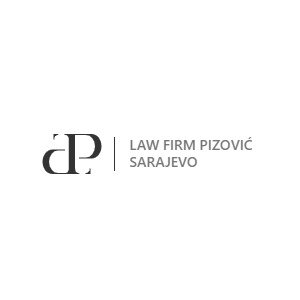Best White Collar Crime Lawyers in Sarajevo
Share your needs with us, get contacted by law firms.
Free. Takes 2 min.
List of the best lawyers in Sarajevo, Bosnia and Herzegovina
About White Collar Crime Law in Sarajevo, Bosnia and Herzegovina
White Collar Crime in Sarajevo, Bosnia and Herzegovina, refers to non-violent, financially motivated offenses committed by individuals, businesses, or government officials. These crimes often include fraud, embezzlement, corruption, insider trading, and money laundering. Given the complex nature of these offenses, Bosnia and Herzegovina has implemented legal frameworks and institutions to detect, investigate, and penalize such activities. White collar crime law is an evolving field, reflecting the growing need to address sophisticated methods used to commit these crimes.
Why You May Need a Lawyer
Individuals or businesses may require legal assistance in several situations related to White Collar Crime, including:
- Being accused or charged with committing a White Collar Crime.
- Suspecting fraudulent activities within an organization.
- Compliance concerns related to financial regulations and corporate governance.
- Investigations by financial regulatory bodies or government agencies.
- Defending against allegations of corruption or money laundering.
In these scenarios, legal experts can provide valuable guidance, ensuring that rights are protected and that compliance with relevant laws is maintained.
Local Laws Overview
The legal framework for addressing White Collar Crime in Bosnia and Herzegovina is primarily governed by the Criminal Code of Bosnia and Herzegovina, which outlines specific offenses and penalties. Key aspects include:
- Fraud and Embezzlement: Defined and penalized under various articles of the Criminal Code, focusing on deceitful practices and misappropriation of funds.
- Corruption: Anti-corruption efforts are a priority, with strict regulations in place to curb bribery and abuse of power.
- Money Laundering: Robust measures, including obligations for financial institutions to report suspicious transactions to prevent laundering of illegal proceeds.
- Regulatory Compliance: Businesses must adhere to financial reporting standards and anti-fraud measures to avoid legal pitfalls.
Frequently Asked Questions
What is considered a White Collar Crime in Bosnia and Herzegovina?
White Collar Crimes include fraud, embezzlement, insider trading, bribery, corruption, and money laundering, typically involving deceit and breach of trust for financial gain.
What should I do if I am accused of a White Collar Crime?
Seek immediate legal counsel to understand your rights and obligations. A lawyer can help navigate the legal process and develop a defense strategy.
How does the investigation process work?
Investigations are conducted by specialized agencies that gather evidence, interview witnesses, and assess financial records to build a case before prosecution.
Can businesses be held liable for White Collar Crimes?
Yes, businesses and corporations can be held liable if they are found to have engaged in or condoned illegal activities.
What are the penalties for White Collar Crimes?
Penalties can include fines, restitution, imprisonment, and loss of professional licenses, depending on the severity of the offense.
How can I report a suspected White Collar Crime?
Report to relevant authorities such as the police or regulatory bodies like the Agency for the Prevention of Corruption and Coordination of the Fight Against Corruption (APIK).
Are there preventive measures for organizations?
Yes, implementing robust compliance programs, regular audits, and staff training can help prevent White Collar Crimes.
What is the role of regulatory bodies?
Regulatory bodies oversee compliance, investigate suspected offenses, and enforce laws related to financial and corporate practices.
How long can a White Collar Crime case take to resolve?
It varies depending on the complexity of the case, availability of evidence, and court schedules. Cases can take months or even years to resolve.
Can a conviction for a White Collar Crime be appealed?
Yes, convictions can be appealed to higher courts where the defendant believes there has been an error in judgment or due process violations.
Additional Resources
For further guidance, consider contacting these resources in Bosnia and Herzegovina:
- Agency for the Prevention of Corruption and Coordination of the Fight Against Corruption (APIK): Provides oversight and enforcement of anti-corruption measures.
- The Prosecutor's Office of Bosnia and Herzegovina: Handles investigations and prosecutions of major crimes, including White Collar Crimes.
- Professional Legal Associations: Offer assistance and resources for legal matters, including the Bar Association of the Federation of Bosnia and Herzegovina.
Next Steps
If you are seeking legal assistance with a White Collar Crime issue in Sarajevo, Bosnia and Herzegovina, consider the following steps:
- Contact a legal professional specializing in criminal law or White Collar Crimes for a consultation.
- Gather all relevant documents and information related to the issue at hand.
- Clearly communicate your concerns and objectives to your legal counsel.
- Follow the advice and legal strategies recommended by your attorney to effectively address your situation.
Lawzana helps you find the best lawyers and law firms in Sarajevo through a curated and pre-screened list of qualified legal professionals. Our platform offers rankings and detailed profiles of attorneys and law firms, allowing you to compare based on practice areas, including White Collar Crime, experience, and client feedback.
Each profile includes a description of the firm's areas of practice, client reviews, team members and partners, year of establishment, spoken languages, office locations, contact information, social media presence, and any published articles or resources. Most firms on our platform speak English and are experienced in both local and international legal matters.
Get a quote from top-rated law firms in Sarajevo, Bosnia and Herzegovina — quickly, securely, and without unnecessary hassle.
Disclaimer:
The information provided on this page is for general informational purposes only and does not constitute legal advice. While we strive to ensure the accuracy and relevance of the content, legal information may change over time, and interpretations of the law can vary. You should always consult with a qualified legal professional for advice specific to your situation.
We disclaim all liability for actions taken or not taken based on the content of this page. If you believe any information is incorrect or outdated, please contact us, and we will review and update it where appropriate.









